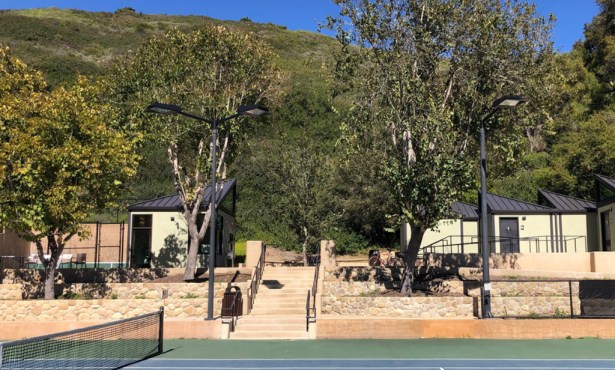Directors’ Cut
A Chat with the Makers of Little Miss Sunshine
by Roger Durling
Little Miss Sunshine is an American family road comedy
that shatters the mold. Brazenly satirical yet deeply human, the
film introduces audiences to one of the most endearingly fractured
families in recent cinema history: the Hoovers, whose trip to a
pre-pubescent beauty pageant results not only in comic mayhem but
in death, transformation, and a moving look at the surprising
rewards of being losers in a winning-crazed culture. A runaway hit
at the Sundance Film Festival, where it played to standing
ovations, the film strikes a nerve with everyone who’s ever been
awestruck by how their muddled families seem to make it after
all.
It’s the first feature film of Jonathan Dayton and Valerie
Faris, who are well-known music video directors for such bands as
the Smashing Pumpkins. For Sunshine, they gathered an
exemplary group of actors, including Greg Kinnear, Alan Arkin, Toni
Collette, and Steve Carell. I sat with the directors over lunch at
Restaurant Nu.
Little Miss Sunshine is a very tricky script because it
moves back and forth from farce to drama. Was that something
daunting for you guys? JD: That’s what we loved about it;
I mean, I feel like our lives move from farce to tragedy to comedy.
And we felt that that was the challenge, and it’s very rare that an
actor can do both comedy and drama. The key for us was to always
keep it honest and if we were being truthful, we felt that those
shifts would happen naturally.
How did you get this great cast? JD: With each
role, we wanted to get someone who wasn’t the obvious choice. For
example, Greg Kinnear is an actor who, when you first see him, it’s
not obvious that he’s kind of a loser. As for Steve Carell, The
40-Year-Old Virgin hadn’t come out yet. A friend of ours who
was directing The Office said, “You gotta look at Steve,
he’s just this great person.”
Did you guys have some rehearsal time before you shot
this? JD: In terms of rehearsals, we had one week. And
with these kind of people you don’t need to go over lines, you just
need to build relationships. So our goal was to create, first, a
family, and then give them a history. We did all kinds of theater
games. And then finally we took a day where we gave Greg Kinnear
and Toni Collette $300 and said, “Alright, you organize a family
trip,” and … they stayed in character all day.
VF: I think the way we approached this thing was not to talk too
much about the characters, but just get them to do things more
physically and emotionally — not be too intellectual about it.
How does it work with both of you directing and being
married? VF: We’ve done it for 20 years now. It seems
strange, but it is a little like parenting. You have a man and a
woman and they have to raise a family and direct their children,
and, you know, it’s very similar in a lot of ways.
Did you guys always discuss things prior to going on the
set so that you don’t have arguments in front of actors?
JD: That’s important. We plan everything at home. … We don’t agree
on a lot of things, and our children actually see us arguing about
work and sometimes they’ll get worried, and we have to explain to
them that it’s just working out our plan and our differences, but
yeah, we don’t argue on set. I mean, sometimes …
Your film was shot very realistically — it’s rare for a
comedy to look this way. VF: We wanted it to be messy and
not perfect. The house should look like a real house
instead of a movie house; we shot everything on location and,
particularly in the car, we shot all of the car scenes out on the
freeway going 45 to 60 mph. It was very tough and miserable; there
was no air conditioning in the car. It was important to us to make
the environment feel real for the actors as well. I don’t like
things that are really too slick or everything so calculated.
Why was the film shot in Super 35mm? VF: The
reason we wanted to shoot that ratio is tçhat we had six equally
important characters and it’s really hard to fit six faces into a
screen, so it just felt like the right thing to do. They’re all of
equal importance and it felt like the most democratic way. You
could get a wide shot and you could really see everyone.
Your movie doesn’t have your typical movie soundtrack.
Who came up with the idea of using Devotchka? VF: We first
heard them on KCRW, and we’d been looking for music for the movie
the whole time we were trying to get the movie made. We finally
heard this one song of theirs, and it felt like the first time we
really heard the sound of the movie. I think what we liked about it
is that it had a sort of spaghetti western sound to it, you know,
like a Sergio Leone film. And the instrumentation also felt like
this sort of oddball bunch of musicians, and it felt like it could
be a nice parallel to the family in the film.


